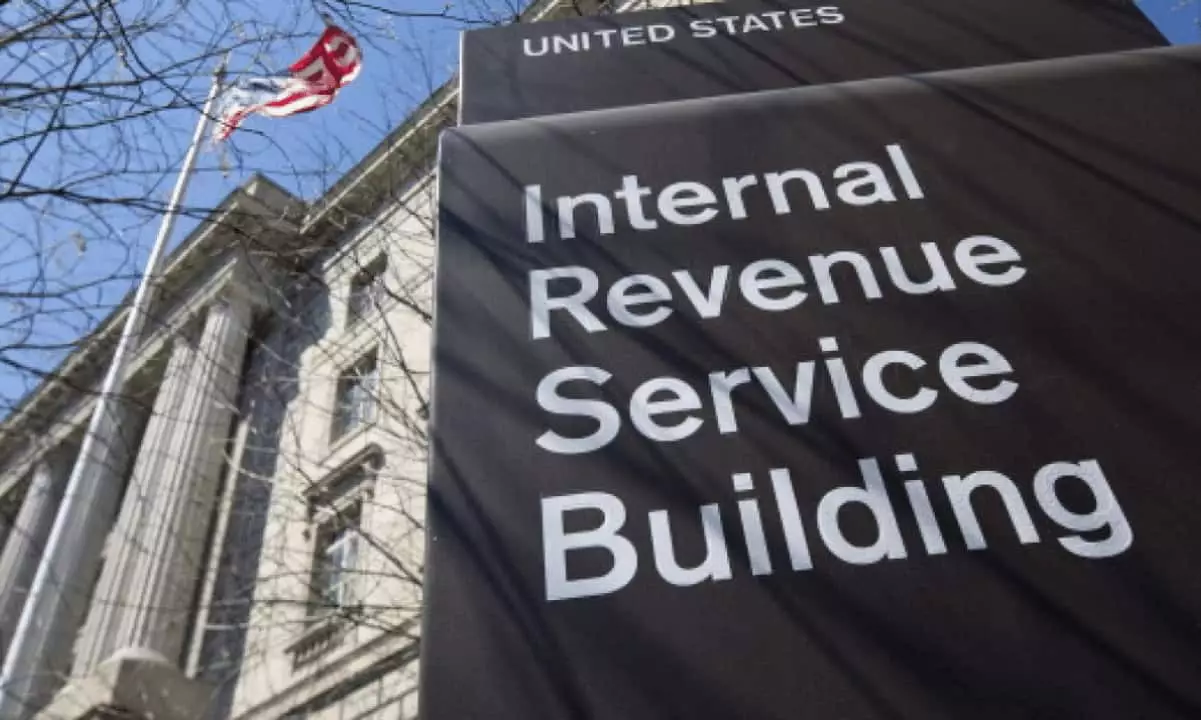The evolving landscape of cryptocurrency taxation presents unique challenges for investors, particularly as the regulations surrounding these digital assets continue to shift. Amid this backdrop, the Internal Revenue Service (IRS) has announced a temporary relief measure aimed at alleviating potential tax implications for cryptocurrency holders engaged with centralized finance (CeFi) brokers. This measure reflects the IRS’s awareness of the complications that can arise from new reporting regulations that are set to take effect in 2025.
Beginning January 1, 2025, the IRS will enforce Section 6045 custodial broker regulations, which mandate that CeFi brokers report all cryptocurrency transactions and adhere to specific accounting methods when documenting asset sales. According to Shehan Chandrasekera, Head of Tax Strategy at CoinTracker, the requirement for brokers to utilize specific accounting practices could inadvertently lead to increased tax liabilities for crypto investors. The different accounting methods available include High In, First Out (HIFO) and Specific Identification (Spec ID), but if a holder does not designate a preferred method, the default approach will be First In, First Out (FIFO).
The FIFO method prioritizes the sale of the earliest acquired assets, which often have a lower cost basis, thereby potentially heightening tax burdens in a bullish market. This scenario poses significant risks for investors who have built their portfolios over time, especially if they fail to navigate the complexities of these new rules. As the January 2025 deadline looms, many CeFi brokers remain ill-equipped to accommodate the Spec ID method, raising additional concerns for tax compliance.
In light of these challenges, the IRS has introduced Notice 2025-7, which offers temporary relief for cryptocurrency transactions executed on CeFi platforms throughout the 2025 calendar year. This important development permits taxpayers to bypass the default FIFO accounting method if they choose to employ their own detailed records or utilize crypto tax software to specify which assets they are selling. By enabling holders to maintain more control over their reported transactions, the IRS seeks to mitigate some of the stress and uncertainty associated with the upcoming regulations.
Importantly, this relief is designed to be automatic; investors do not need to take specific action to benefit from it. However, effective January 1, 2026, cryptocurrency users will be required to explicitly select an accounting method through their CeFi brokers. As anticipations grow that brokers will enhance their systems to support varied accounting options by this timeframe, the need for detailed documentation and planning becomes paramount.
Despite this temporary relief, Chandrasekera advises investors to proactively manage their tax reporting. Detailed record-keeping or reliance on reputable crypto tax software is critical for ensuring accurate reporting in alignment with the chosen accounting methods. Taxpayers should remain vigilant, as defaulting to the FIFO method based on the broker’s inability to support other accounting options could have unfavorable financial repercussions. A key takeaway for investors is to confirm that their chosen broker’s accounting methods are compatible with their own tax strategy.
Investors are also encouraged to anticipate the changes and prepare for 2026 by reviewing their portfolios and tax implications well in advance. The IRS’s recent developments follow broader regulatory shifts, particularly the controversial expansion of broker definitions to encompass decentralized finance (DeFi) platforms. These changes underscore the complexity of the regulatory environment and the potential repercussions for those involved in cryptocurrency transactions.
The recent regulatory landscape is not without its challenges. Legal pushback has emerged from significant players in the crypto sector, such as A16z Crypto and the DeFi Education Fund, in response to the IRS’s broker reporting rule introduced under the Infrastructure Investment and Jobs Act. Critics argue that this rule not only oversteps the Treasury’s authority but also undermines the intent of the Administrative Procedure Act, suggesting that ongoing legal battles will shape how regulations will be enforced moving forward.
While the IRS’s temporary relief for CeFi broker transactions provides a crucial window of flexibility for crypto investors, it is imperative that holders remain proactive in their tax strategies. By maintaining thorough records, verifying broker capabilities, and understanding the implications of the new regulatory framework, investors can navigate the intricate world of cryptocurrency taxation with greater confidence and insight. The landscape may be tumultuous, but with careful planning and adaptability, investors can mitigate risks and optimize their positions in this dynamic market.

